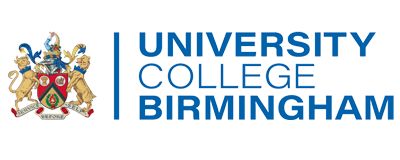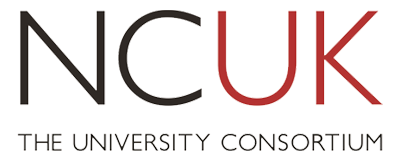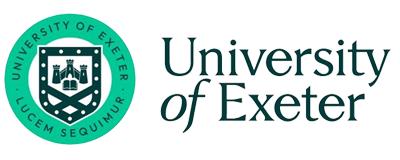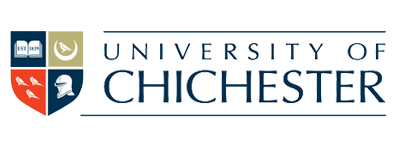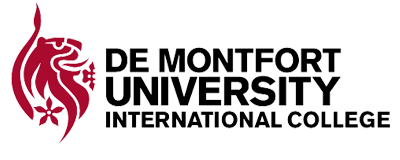Why is Canada the best destination for Nepalese students?

Canada is considered one of the best destinations for Nepalese students for several reasons:
- High-Quality Education: Canadian universities and colleges offer world-class education with rigorous academic standards and globally recognized programs.
- Diverse and Inclusive Society: Canada embraces multiculturalism, providing a welcoming environment for Nepalese students to experience cultural diversity and foster cross-cultural understanding.
- Safe and Secure Environment: Canada is known for its low crime rates and stable political environment, ensuring the safety and well-being of Nepalese students.
- Excellent Healthcare System: Nepalese students have access to comprehensive healthcare services through Canada’s publicly funded healthcare system.
- Post-Graduation Work Opportunities: Programs like the Post-Graduation Work Permit (PGWP) offer Nepalese students the chance to gain work experience in Canada after graduation.
- Immigration Pathways: Canada offers various immigration pathways for international students to transition to permanent residency and citizenship.
- Natural Beauty and Quality of Life: Canada boasts stunning natural landscapes and outdoor recreational opportunities, contributing to a high quality of life.
- Affordable Education and Living Costs: Compared to other study destinations, Canada offers relatively affordable tuition fees and living costs, supported by scholarships and financial aid options.
Overall, Canada’s reputation for high-quality education, safety, inclusivity, post-graduation work opportunities, immigration pathways, and quality of life makes it an attractive destination for Nepalese students seeking international education and career opportunities.
What are the courses taken by Nepalese students in Canada?

Determining which courses are “good” for Nepalese students in Canada depends on various factors such as individual interests, career aspirations, market demand, and personal strengths. However, some courses are generally considered favorable due to their high demand in the job market and potential for career growth. Here are some suggestions:
- Engineering: Fields like Civil Engineering, Software Engineering, and Electrical Engineering are highly sought after in Canada due to ongoing infrastructure projects and technological advancements.
- Computer Science and Information Technology: With the rise of the digital economy, there is a growing demand for skilled professionals in areas such as software development, cybersecurity, data science, and artificial intelligence.
- Healthcare: Nursing, Pharmacy, and other healthcare-related fields are in high demand in Canada due to an aging population and ongoing healthcare reforms.
- Business Administration and Management: Studying business-related courses can lead to opportunities in various industries. Specializations like Finance, Marketing, and Human Resource Management are particularly popular.
- Finance and Accounting: Canada’s financial sector is robust, offering opportunities for those with backgrounds in finance, accounting, and related fields.
- Environmental Sciences and Sustainability Studies: With increasing awareness of environmental issues, there is a growing demand for professionals skilled in sustainability, environmental management, and renewable energy.
- Hospitality and Tourism Management: Canada’s tourism industry is thriving, making this field attractive for those interested in hospitality management, event planning, and tourism development.
- Education: Teaching is a respected profession in Canada, and there is a demand for qualified educators, especially in subjects like Mathematics, Science, and English as a Second Language (ESL).
- Social Sciences: Fields such as Psychology, Sociology, and International Relations can lead to careers in counseling, social work, research, and international organizations.
- Engineering Technology and Trades: Programs that offer hands-on training in trades such as welding, carpentry, and automotive technology can lead to rewarding careers in Canada’s skilled trades sector.
Ultimately, the best course for a Nepalese student in Canada is one that aligns with their interests, skills, and career goals. It’s essential to research the job market, industry trends, and immigration pathways to make an informed decision. Additionally, considering factors like program reputation, alumni success, and networking opportunities can also contribute to the overall educational experience and career prospects.
Which cities are most populated by Nepalese students in Canada?

Nepalese students are dispersed across various cities in Canada, but there are certain cities that have larger populations of Nepalese students due to factors such as the presence of universities/colleges, job opportunities, and community support. Some of the cities with significant populations of Nepalese students include:
- Toronto, Ontario: Toronto is one of Canada’s largest cities and has a diverse population of international students, including those from Nepal. It is home to several universities and colleges, making it a popular destination for students pursuing higher education.
- Vancouver, British Columbia: Vancouver is known for its beautiful scenery, multicultural environment, and reputable educational institutions. It attracts students from around the world, including Nepal, who come to study at universities and colleges in the city.
- Montreal, Quebec: Montreal is a vibrant city with a rich cultural scene and several universities and colleges offering a range of programs. It is also known for its relatively lower cost of living compared to other major Canadian cities, making it attractive to international students, including those from Nepal.
- Edmonton, Alberta: Edmonton is another city in Canada with a notable population of Nepalese students. It is home to the University of Alberta, which offers a variety of undergraduate and graduate programs, attracting students from diverse backgrounds.
- Calgary, Alberta: Calgary is a major city in Alberta with a growing population of international students. It has several post-secondary institutions, including the University of Calgary and SAIT (Southern Alberta Institute of Technology), which draw students from Nepal and other countries.
- Ottawa, Ontario: As the capital city of Canada, Ottawa is home to several universities and colleges, including Carleton University and the University of Ottawa. It offers a mix of academic opportunities and cultural experiences, attracting students from around the world, including Nepal.
These cities are known for their educational opportunities, cultural diversity, and overall quality of life, making them attractive destinations for Nepalese students pursuing higher education in Canada. However, it’s essential to note that Nepalese students can be found in various other cities across Canada, depending on individual preferences and academic pursuits.
What are the eligible criteria for Nepalese students in Canada?

The eligibility criteria for Nepalese students seeking to study in Canada typically include the following:
- Admission Requirements: Students must meet the admission requirements set by the Canadian educational institution they are applying to. This often includes academic qualifications such as high school transcripts, standardized test scores (like the SAT or ACT), letters of recommendation, and a statement of purpose or personal statement.
- English Proficiency: Most Canadian universities and colleges require international students, including those from Nepal, to demonstrate proficiency in English by submitting scores from standardized English language tests such as the IELTS (International English Language Testing System) or TOEFL (Test of English as a Foreign Language). Some institutions may accept other English proficiency tests as well.
- Financial Support: Students must demonstrate that they have sufficient funds to cover tuition fees, living expenses, and other related costs for the duration of their studies in Canada. This may involve providing bank statements, sponsorship letters, or scholarship awards as proof of financial support.
- Study Permit: Nepalese students planning to study in Canada for more than six months must obtain a study permit from the Canadian government. To apply for a study permit, students need to provide a letter of acceptance from a Canadian educational institution, proof of financial support, a valid passport, and other supporting documents as required by the immigration authorities.
- Health Insurance: International students studying in Canada are typically required to have health insurance coverage for the duration of their stay. Some provinces may have specific health insurance requirements, so students should check the regulations of the province where they plan to study.
- Medical Examination: In some cases, students may be required to undergo a medical examination to demonstrate that they are in good health and do not pose a risk to public health and safety in Canada.
- Background Checks: Students may be required to provide police clearance certificates or other documentation to demonstrate that they have a clean criminal record.
It’s important for Nepalese students to carefully review the specific requirements and procedures set by the Canadian educational institution they wish to attend, as well as the Canadian government’s immigration guidelines, to ensure that they meet all eligibility criteria and submit a complete application for study in Canada.
How to apply for a scholarship in Canada by Nepalese students?

Nepalese students interested in applying for scholarships to study in Canada can follow these general steps:
- Research Scholarship Opportunities: Start by researching scholarships available to international students studying in Canada. These scholarships may be offered by Canadian universities, governmental organizations, non-profit organizations, or private institutions. Websites like the Canadian government’s official scholarship portal, EduCanada, and scholarship search engines can be helpful resources for finding scholarships.
- Check Eligibility Criteria: Carefully review the eligibility criteria for each scholarship to ensure that you meet the requirements. Criteria may include academic merit, financial need, field of study, country of origin, and other factors.
- Prepare Required Documents: Gather all the necessary documents required for the scholarship application. This may include academic transcripts, letters of recommendation, a statement of purpose or personal essay, proof of English proficiency (such as IELTS or TOEFL scores), and any other supporting documents specified by the scholarship provider.
- Submit Applications: Complete and submit the scholarship applications by the specified deadlines. Pay close attention to the application instructions and ensure that all required documents are included. Some scholarships may have online application portals, while others may require submission by mail or email.
- Follow Up: After submitting your scholarship applications, monitor your email and other communication channels for updates or requests for additional information from the scholarship providers. Be prepared to respond promptly and provide any additional documentation if required.
- Prepare for Interviews (if applicable): Some scholarship programs may require applicants to participate in interviews as part of the selection process. If you are selected for an interview, prepare by practicing common interview questions and researching the scholarship provider and its objectives.
- Await Notification: Once you have submitted your scholarship applications and completed any required interviews, await notification regarding the status of your application. Scholarship providers typically inform applicants of their decision within a certain timeframe.
- Accept Scholarship Offers: If you are awarded a scholarship, carefully review the terms and conditions of the award, including any requirements or obligations you must fulfill as a scholarship recipient. Follow the instructions provided to accept the scholarship offer and complete any necessary paperwork.
- Apply for Study Permit (if applicable): If you are awarded a scholarship and plan to study in Canada for more than six months, you will need to apply for a study permit from the Canadian government. Follow the study permit application process and ensure that you meet all requirements.
By following these steps and actively seeking out scholarship opportunities, Nepalese students can increase their chances of securing financial assistance to pursue their studies in Canada.
What are the job opportunities available for Nepalese students in Canada?

Nepalese students studying in Canada have access to various job opportunities during and after their studies. Some of the job opportunities available for Nepalese students in Canada include:
- On-Campus Jobs: Many Canadian universities and colleges offer on-campus employment opportunities for international students, including positions such as research assistants, library assistants, administrative assistants, and campus tour guides. These jobs provide students with valuable work experience and flexibility to balance work and studies.
- Off-Campus Jobs: Nepalese students with a valid study permit are eligible to work off-campus during their studies in Canada. They can work up to 20 hours per week during regular academic sessions and full-time during scheduled breaks, such as summer and winter holidays. Off-campus job opportunities may include positions in retail, hospitality, customer service, and other industries.
- Co-op and Internship Programs: Many Canadian universities and colleges offer co-op and internship programs that allow students to gain practical work experience related to their field of study. These programs are often paid and provide students with valuable industry experience, professional connections, and potential career opportunities after graduation.
- Post-Graduation Work Permit (PGWP): Nepalese students who graduate from a Canadian post-secondary institution may be eligible for a Post-Graduation Work Permit (PGWP), which allows them to work in Canada for up to three years after completing their studies. The PGWP provides an excellent opportunity for Nepalese students to gain Canadian work experience and potentially transition to permanent residency through programs like the Canadian Experience Class (CEC).
- Skilled Worker Programs: Canada offers various immigration pathways for skilled workers, including programs like the Express Entry system, Provincial Nominee Programs (PNPs), and the Atlantic Immigration Pilot Program (AIPP). Nepalese students who gain Canadian work experience through programs like the PGWP may be eligible to apply for permanent residency through these skilled worker programs.
- Entrepreneurship and Self-Employment: Canada encourages entrepreneurship and innovation, and Nepalese students with entrepreneurial aspirations can explore opportunities to start their own businesses or freelance careers in Canada. The Canadian government offers programs and support services for aspiring entrepreneurs, including the Start-Up Visa Program and small business grants and loans.
Overall, Canada offers a wide range of job opportunities for Nepalese students, both during and after their studies. By taking advantage of on-campus employment, internships, co-op programs, post-graduation work permits, and skilled worker pathways, Nepalese students can gain valuable work experience, build professional networks, and pursue rewarding careers in Canada.
What is the best time for Nepalese students to apply in the Canada for higher education?

The best time for Nepalese students to apply for higher education in Canada depends on several factors, including the academic calendar of Canadian universities and colleges, the application deadlines for specific programs, and the processing times for study permit applications. However, as a general guideline, it is advisable for Nepalese students to start the application process at least 12-18 months before the intended start date of their academic program. Here’s a suggested timeline:
- Research Early: Begin researching Canadian universities, colleges, and programs of interest at least 6-8 months before the desired intake. Consider factors such as program reputation, curriculum, faculty expertise, location, cost of living, and available scholarships.
- Narrow Down Choices: By around 5 months before the intended start date, narrow down your list of preferred institutions and programs based on your research. Consider factors such as program requirements, admission criteria, and potential career opportunities after graduation.
- Prepare Application Materials: Gather all necessary application materials, including academic transcripts, standardized test scores (if required), letters of recommendation, statement of purpose or personal essay, and proof of English proficiency (such as IELTS or TOEFL scores). Some programs may have additional requirements, so be sure to check each institution’s website carefully.
- Meet Deadlines: Canadian universities and colleges typically have specific application deadlines for each intake, with deadlines ranging from 8-12 months before the start of the academic program. Make sure to submit your applications well before the deadlines to allow time for processing and review.
- Apply for Study Permit: Once you receive an acceptance letter from a Canadian institution, you can proceed to apply for a study permit from the Canadian government. It is recommended to apply for the study permit as soon as possible after receiving the acceptance letter to allow ample time for processing.
- Plan for Arrival: Around 2-4 months before the start of your academic program, start planning for your arrival in Canada. This includes arranging accommodation, obtaining health insurance coverage, and familiarizing yourself with the Canadian immigration process.
- Visa and Travel Arrangements: Once your study permit application is approved, you can proceed with visa and travel arrangements. Be sure to book your flights, arrange for transportation from the airport to your accommodation, and prepare any necessary documentation for border entry.
By following this timeline and starting the application process well in advance, Nepalese students can maximize their chances of securing admission to their preferred Canadian institutions and smoothly transitioning to studying in Canada. It’s essential to stay organized, meet deadlines, and seek guidance from educational advisors or immigration consultants if needed throughout the application process.

